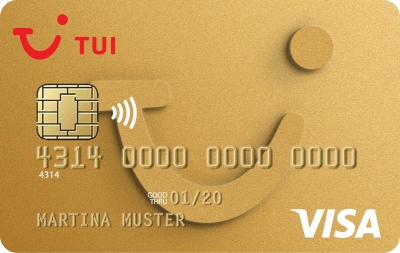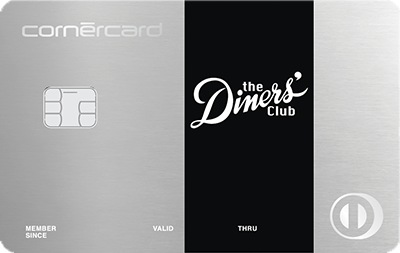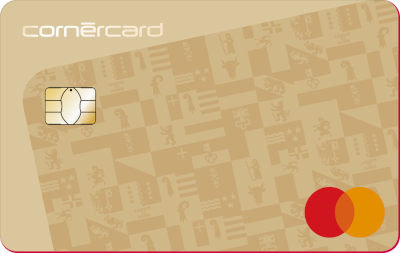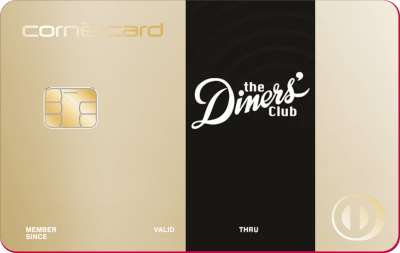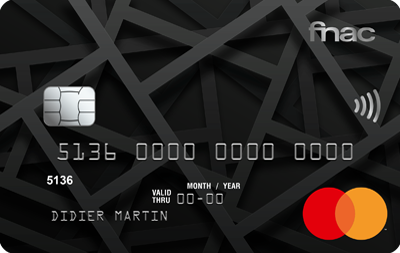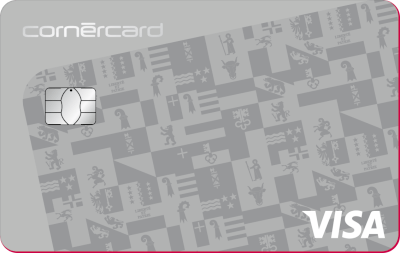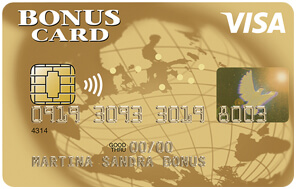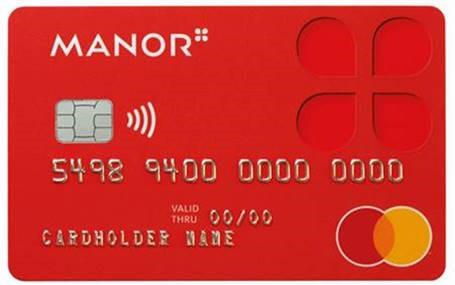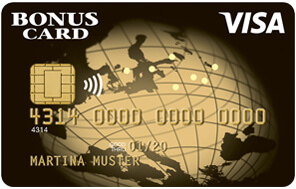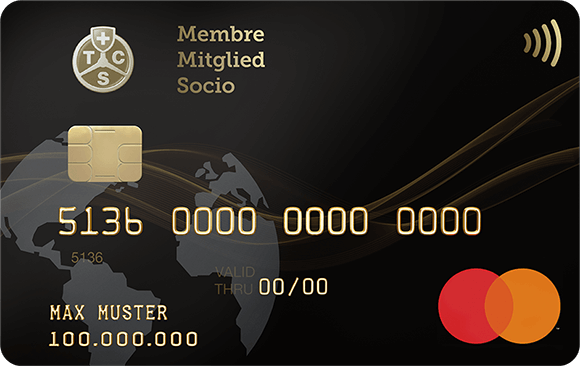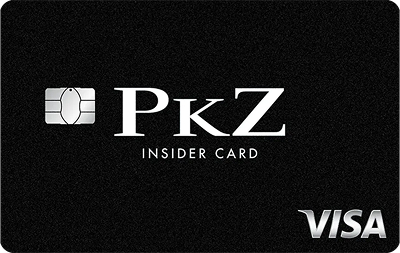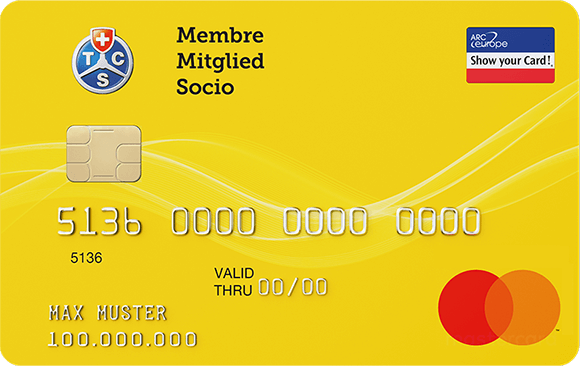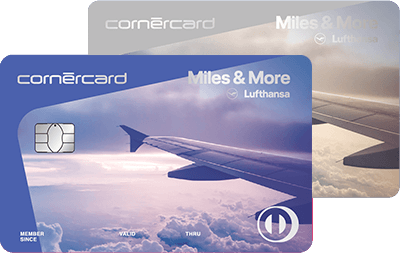Understanding Shopping Credit Cards in Switzerland
The best shopping credit cards in Switzerland optimize rewards for retail spending through partnerships with major Swiss retailers, elevated cashback rates at specific merchants, or bonus point structures for shopping categories. Unlike general-purpose cards, shopping credit card Switzerland options concentrate benefits where Swiss residents spend most frequently—supermarkets, department stores, online marketplaces, and specialty retailers.
Swiss shopping cards operate through three primary models: co-branded retail cards partnering with specific chains like Coop or Manor, category bonus cards offering elevated rewards on broad shopping categories, and flexible cashback cards providing consistent returns across all retail spending. Each model suits different shopping patterns and merchant preferences.
The Swiss retail landscape features concentrated market players—Migros and Coop dominate grocery, Manor and Globus lead department stores—making targeted partnerships particularly valuable. Understanding your primary shopping destinations determines which card structure delivers optimal returns, whether through exclusive discounts, accelerated points, or straightforward cashback.
How Swiss Shopping Credit Cards Work
Retail Partnership Structures
Co-branded cards establish exclusive relationships with specific retailers, offering substantial benefits—1% to 3% rewards—at partner locations while providing reduced benefits elsewhere. These cards excel when your spending concentrates at partner merchants but underperform with diversified shopping habits.
Partnership benefits extend beyond earnings rates: exclusive sale access, extended return periods, bonus point events, and special financing offers at partner retailers. Premium co-branded cards might include annual shopping vouchers or invitation-only events, adding value beyond transactional rewards.
Multi-retailer networks pool several merchants under one card program, broadening earning opportunities while maintaining elevated rates. These networks typically group complementary retailers—fashion, electronics, home goods—creating comprehensive shopping ecosystems.
Category Bonus Systems
Category-based shopping cards identify broad spending categories—groceries, fuel, department stores, online shopping—applying elevated reward rates to these categories regardless of specific merchant. This structure provides flexibility while maintaining enhanced returns on shopping-related spending.
Categories typically define themselves through merchant category codes (MCCs) that credit card networks assign to businesses. Supermarkets, grocery stores, and wholesale clubs share MCC ranges, enabling cards to recognize and reward these purchases automatically without requiring specific merchant partnerships.
Quarterly rotating categories occasionally appear, though less common in Switzerland than in American markets. When present, these programs require activation and attention to maximize value, potentially offering 3% to 5% returns during promotional periods.
Points and Rewards Mechanisms
Shopping card rewards manifest as retailer-specific points, flexible points convertible to vouchers, or direct cashback. Retailer points typically offer strongest redemption value at partner stores—1 point = CHF 0.01 to CHF 0.02 value—but limit spending options.
Voucher programs convert accumulated points to shopping vouchers usable at partner retailers, often at favorable conversion rates during promotional periods. Some programs offer 10% to 20% bonus value when redeeming for vouchers versus cash, incentivizing in-network spending.
Instant discounts at point of sale represent the most immediate benefit structure, automatically applying percentage discounts to qualifying purchases. This real-time reward delivery enhances psychological satisfaction compared to deferred points accumulation.
Shopping Card Categories
Supermarket and Grocery Cards
Grocery-optimized cards target Switzerland's largest spending category for most households, offering 1% to 2% rewards on supermarket purchases. Given typical Swiss families spend CHF 800 to CHF 1,200 monthly on groceries, these cards generate CHF 96 to CHF 288 annual rewards—potentially exceeding annual fees on premium cards.
Major Swiss supermarket chains Migros and Coop previously operated proprietary credit programs, though the market has evolved toward broader banking partnerships. Current cards emphasizing grocery rewards typically operate through MCC-based category recognition rather than exclusive single-retailer relationships.
Warehouse clubs like Aligro remain niche in Switzerland compared to other markets, but cards recognizing wholesale MCCs can provide value for families or individuals with storage space and consistent product needs.
Department Store Cards
Department store partnerships with Manor, Globus, or Jelmoli offer elevated rewards—1.5% to 3%—on purchases at these premium retailers. These cards suit consumers who concentrate fashion, home goods, and gift shopping at department stores rather than specialized boutiques or online marketplaces.
Department store cards frequently include special event invitations, personal shopping services, and extended return windows—benefits appealing to regular customers seeking enhanced shopping experiences beyond pure financial returns.
Online Shopping Cards
E-commerce optimized cards recognize the growing Swiss online shopping market, offering bonus rewards on internet purchases across various merchants. These cards identify online transactions through digital payment indicators, applying elevated rates regardless of specific retailer.
Digital wallet integration—Apple Pay, Google Pay, Samsung Pay—enables seamless online and contactless in-store payments while earning full rewards. Cards emphasizing online shopping typically offer strong digital payment support and robust fraud protection for internet transactions.
Marketplace partnerships with platforms like Galaxus, Digitec, or international giants like Amazon provide elevated earning rates or exclusive discounts when shopping through these high-volume channels.
Fashion and Apparel Cards
Fashion-focused cards partner with clothing retailers, shoe stores, and accessory shops, offering 2% to 4% rewards on fashion purchases. These specialized cards appeal to fashion-conscious consumers but require concentrated spending in apparel categories to justify annual fees.
Some fashion cards provide seasonal vouchers or birthday bonuses, adding periodic value boosts throughout the year. Styling services or first-access to sales represent non-financial benefits enhancing the fashion shopping experience.
General Retail Rewards Cards
Broad retail cards avoid specific partnerships, offering consistent 0.5% to 1% rewards across all shopping categories. These cards provide simplicity and flexibility, rewarding all spending types without requiring merchant awareness or category activation.
General retail cards excel as primary spending cards for individuals who shop diversely across many merchants and categories. While per-transaction returns might lag specialized cards, cumulative annual rewards often match or exceed specialized alternatives when spending disperses widely. Compare these options with our comprehensive Best Credit Cards in Switzerland guide.
Key Features to Evaluate
Annual Fees and Membership Costs
Shopping card annual fees range from CHF 0 to CHF 150. No-fee cards typically offer 0.5% to 1% rewards, while premium shopping cards charging CHF 50 to CHF 150 provide elevated rates—1.5% to 2%—plus additional benefits.
Break-even analysis for shopping cards: annual fee ÷ (premium reward rate - baseline rate) = required annual shopping spend. A CHF 100 annual fee card offering 2% rewards versus a free 0.5% alternative requires CHF 6,667 annual shopping spend to break even on pure rewards, excluding additional benefits.
First-year waivers appear frequently on shopping cards, enabling risk-free testing. Evaluate actual usage during the trial period before committing to ongoing annual fees.
Reward Rates and Earning Potential
Base earning rates on shopping cards typically range from 0.5% to 1% on general spending, increasing to 1% to 3% on partner or category shopping. Premium shopping cards might reach 4% to 5% during promotional periods at specific retailers.
Earning caps limit total annual rewards on some programs—typically CHF 500 to CHF 1,500 maximum cashback or points per year. High-spending households should verify whether caps restrict their potential returns before selecting capped programs.
Minimum purchase requirements occasionally apply for reward eligibility—transactions below CHF 5 or CHF 10 might exclude rewards. Verify terms if you frequently make small purchases at convenience stores or quick-service restaurants.
Redemption Options and Flexibility
Point expiration policies vary dramatically: some programs maintain points indefinitely with account activity, while others impose 12 to 24-month expiration from earning. Shorter expiration windows require more frequent redemption attention, potentially encouraging suboptimal spending to avoid forfeiture.
Redemption thresholds range from no minimum to CHF 50 accumulated rewards before payout. Cards with high thresholds delay benefit realization, potentially causing frustration for modest spenders or requiring extended accumulation periods.
Redemption formats include statement credits, shopping vouchers, gift cards, direct bank deposits, or partner merchant discounts. Broader redemption options provide flexibility, while restricted redemptions might offer bonus value—10% to 20% extra when redeeming for partner vouchers versus cash.
Purchase Protection and Insurance
Purchase protection on shopping cards covers new items against theft, accidental damage, or loss for 30 to 90 days post-purchase. This coverage particularly benefits electronics, appliances, and higher-value items, providing peace of mind beyond merchant return policies.
Extended warranty coverage adds 6 to 12 months to manufacturer warranties on qualifying purchases. This benefit applies broadly to electronics, appliances, and durable goods, potentially saving hundreds of francs on repair or replacement costs.
Price protection guarantees on some premium shopping cards refund price differences if purchased items drop in price within 30 to 60 days. This feature has declined in availability globally but remains valuable where offered, particularly for significant purchases.
Additional Shopping Benefits
Exclusive sales access provides early shopping opportunities before public sales commence, enabling first selection of discounted merchandise. For competitive sale items—designer fashion, limited-edition products—early access delivers tangible advantage.
Bonus point events occur periodically—typically seasonally or during retailer anniversaries—offering 2x to 5x standard rewards for limited periods. Strategic shoppers time major purchases around these events, maximizing per-franc returns.
Concierge services on premium shopping cards assist with gift shopping, product sourcing, or special occasion planning. While less common than on luxury cards, shopping-focused concierges understand retail landscapes and can save significant time for busy consumers.
Comparing Shopping Cards to Alternatives
Shopping Cards vs. Cashback Cards
Cashback cards provide universal value across all spending categories without requiring merchant awareness or partnership knowledge. Shopping cards deliver superior returns at specific retailers but underperform on non-retail spending. For detailed cashback comparisons, visit our Best Cashback Credit Cards page.
Calculate your retail spending percentage: annual retail spending ÷ total annual spending = retail concentration. If retail represents 60%+ of spending, specialized shopping cards likely outperform general cashback. Below 50%, cashback cards' simplicity and universal rewards might deliver better practical returns.
Shopping Cards vs. Travel Rewards
Travel cards excel for frequent travelers through miles, points, and travel insurance, while shopping cards optimize everyday retail spending. Most consumers benefit from maintaining both card types, using each for its optimization category. Explore travel options on our Best Travel Credit Cards comparison.
Shopping Cards vs. Premium All-Purpose Cards
Premium cards bundle shopping benefits with travel insurance, lounge access, and lifestyle services, charging CHF 200 to CHF 500 annual fees. Dedicated shopping cards focus exclusively on retail optimization at lower fees—CHF 0 to CHF 150. Compare premium options on our Best Premium Credit Cards page.
Maximizing Shopping Card Value
Strategic Merchant Selection
Loyalty concentration at primary partner merchants maximizes card benefits. If you shop predominantly at Coop, a Coop-affiliated card delivers optimal returns. Diversified shopping across many retailers favors general shopping cards or flexible cashback programs over restrictive partnerships.
Online vs. in-store optimization matters for cards distinguishing between purchase channels. Some cards offer elevated online rates recognizing e-commerce growth, while others maintain channel-neutral rewards. Align card selection with your shopping channel preferences.
Combining Multiple Shopping Cards
Multi-card strategies optimize returns by using different cards for different shopping categories: supermarket card for groceries, department store card for fashion, cashback card for miscellaneous spending. This approach requires organization but maximizes overall household rewards.
Household coordination enables couples or families to maintain complementary card portfolios, each member optimizing different spending categories while consolidating rewards for family goals—vacations, appliances, or savings.
Timing Major Purchases
Promotional periods—Black Friday, holiday sales, retailer anniversaries—often feature elevated card rewards alongside merchant discounts. Coordinating timing captures both benefits, potentially saving 20% to 40% through combined merchant and card discounts.
New cardholder bonuses provide substantial value—CHF 50 to CHF 200 rewards after meeting minimum spending requirements in initial months. Time card applications before planned major purchases—appliances, furniture, electronics—to easily satisfy bonus thresholds while earning standard rewards.
Leveraging Special Benefits
Extended return periods on shopping cards—often 30 to 90 days versus standard 14-day retailer policies—reduce purchase pressure and enable thoughtful decisions. This benefit particularly values clothing, electronics, and gift purchases where fit, performance, or recipient preferences remain uncertain.
Birthday bonuses and anniversary rewards provide annual value boosts independent of spending levels. Cards offering these benefits effectively reduce net annual costs, improving overall value propositions.
Common Shopping Card Mistakes
Chasing Rewards Without Calculating Value
Manufactured spending—making unnecessary purchases to earn rewards—destroys value by increasing total expenditure beyond reward returns. A 2% reward rate means spending CHF 100 to earn CHF 2—only valuable if you needed the purchase regardless of rewards.
Ignoring Annual Fee Impact
Marginal benefit analysis requires calculating whether premium shopping cards' elevated rates justify annual fees. A CHF 100 fee card offering 2% versus a free 1% alternative requires CHF 10,000 annual shopping spend to break even—verify your spending supports the upgrade.
Focusing Solely on Earning Rates
Redemption value matters as much as earning rates. A card earning 3% in partner points worth CHF 0.01 each delivers effective 3% returns. If those points redeem at only CHF 0.005 value due to poor options, effective returns drop to 1.5%—potentially inferior to simpler cashback alternatives.
Allowing Points to Expire
Expiration policies cause thousands of francs in forfeited rewards annually across Swiss consumers. Set calendar reminders for expiration dates, establishing systematic redemption schedules ensuring accumulated rewards don't vanish unused.
Overlooking Card Benefits Beyond Rewards
Purchase protection, extended warranties, and exclusive events provide value beyond pure percentage returns. Include these benefits in total value calculations when comparing cards, particularly for high-value or frequent electronics and appliance purchases.
Special Considerations for Swiss Shoppers
Cross-Border Shopping
German and French border shopping remains popular for Swiss residents near borders, seeking lower prices on groceries and consumer goods. Shopping cards charging foreign transaction fees—typically 1.5% to 2.5%—erode savings from price differences. Select cards with zero foreign fees if cross-border shopping represents significant annual spending.
Swiss Retailer Landscape
Market concentration in Swiss retail means a few major players dominate multiple categories. Understanding whether your preferred retailers participate in specific card networks determines potential reward capture rates across your overall shopping.
Independent retailers and small businesses might not qualify for category bonuses or partner rewards, limiting shopping card effectiveness for consumers prioritizing local, independent shopping over chain retailers.
Language and Regional Differences
Multilingual support—German, French, Italian, English—ensures seamless customer service and program understanding across Switzerland's linguistic regions. Verify your preferred language receives full support before committing to specific card programs.
Regional retailer variations mean certain cards might offer stronger partnerships in German-speaking regions versus Romandie or Ticino. Consider whether your regional retailers participate effectively in card programs before selecting geographically limited partnerships.
Digital Shopping Integration
Mobile App Features
Real-time reward tracking through mobile banking apps provides immediate spending feedback, enhancing awareness and potentially moderating unnecessary purchases. Digital tracking proves more engaging than quarterly paper statements, improving program satisfaction.
Digital receipts and purchase history within apps simplify expense tracking, budgeting, and tax documentation for business expenses or medical deductions. These features transform credit cards into comprehensive spending management tools beyond simple payment instruments.
E-Commerce Platform Integration
One-click checkout partnerships with major e-commerce platforms streamline online shopping while earning full rewards. These integrations reduce friction, improving user experience while maintaining security through tokenized card data.
Loyalty program linking connects credit card rewards with retailer loyalty programs—Cumulus, Supercard, or merchant-specific programs—enabling simultaneous earning across multiple systems. This integration maximizes overall returns on qualifying purchases.
Environmental and Ethical Shopping
Sustainable Shopping Rewards
Eco-conscious card programs offer elevated rewards for purchases at sustainable retailers, organic markets, or fair-trade merchants. While niche, these programs appeal to environmentally aware consumers aligning spending with values while earning rewards.
Carbon offset programs integrated into some cards automatically offset purchase-related emissions, particularly valuable for offsetting environmental impact of consumer goods production and shipping.
Ethical Retailer Partnerships
Fair-trade and ethical retailer partnerships distinguish certain shopping cards, supporting businesses with strong labor practices and sustainable supply chains. Consumers prioritizing ethical consumption can align card selection with values without sacrificing reward potential.
Application and Approval Process
Documentation Requirements
Shopping card applications require standard documentation:
- Valid residence permit (B, C, or Swiss passport)
- Proof of income (salary certificates or tax returns)
- Address confirmation (utility bill or rental contract)
- Existing banking relationships (beneficial but typically optional)
Processing times range from instant approval for existing bank customers to 2-3 weeks for new relationships. Digital applications through bank or card issuer apps expedite processing significantly.
Credit Assessment Standards
Income requirements for shopping cards typically start at CHF 30,000 annually for basic cards, increasing to CHF 50,000+ for premium shopping cards. These thresholds remain more accessible than travel or luxury cards, reflecting shopping cards' everyday utility focus.
Credit history assessment through ZEK databases identifies negative credit events—defaults, bankruptcies, unpaid bills—that complicate or prevent approval. Maintaining clean credit histories facilitates approval and potentially higher initial credit limits.
Approval Criteria by Card Type
Co-branded retail cards sometimes feature relaxed approval criteria due to merchant subsidies and customer acquisition goals. These cards can serve as credit-building tools for consumers with limited Swiss credit history, though starting with modest credit limits.
Premium shopping cards require stronger financial profiles—higher income, established banking relationships, clean credit—reflecting elevated credit limits and comprehensive benefit packages. Build credit history with entry cards before pursuing premium options if needed.
Future Shopping Card Trends
Personalized Reward Algorithms
Machine learning enables increasingly sophisticated reward personalization, automatically identifying individual shopping patterns and applying optimal reward rates without manual category selection. Future cards might dynamically adjust rewards matching your evolving preferences.
Augmented Shopping Experiences
AR-enabled shopping assistants integrated with credit cards might provide real-time price comparisons, review aggregation, or reward value calculations while shopping in-store or online, enhancing decision-making at point of purchase.
Blockchain and Digital Loyalty Integration
Blockchain-based loyalty programs promise increased transparency, easier point transfers between programs, and reduced fraud. While still emerging, these technologies might revolutionize shopping rewards, enabling seamless multi-merchant participation.
Subscription and Membership Integration
Prime-style memberships bundled with credit cards might emerge in Swiss markets, combining shopping rewards with delivery benefits, exclusive content, or service discounts—comprehensive packages enhancing customer lifetime value and loyalty.
Making Your Final Decision
Selecting the best shopping credit cards in Switzerland requires analyzing your shopping patterns across merchants, categories, and channels. Start by tracking 2-3 months of expenses, categorizing by merchant and purchase type. This data reveals whether concentrated partnership cards or flexible general shopping cards align better with your actual behavior.
Calculate your primary shopping destinations: percentage spent at supermarkets, department stores, online marketplaces, and specialty retailers. If 40%+ of shopping concentrates at one or two retailers, partnership cards likely deliver superior returns. Diversified spending across many merchants favors flexible cashback or category-based cards.
Evaluate annual fee justification through break-even analysis: premium card benefits minus annual fee must exceed free card benefits to justify costs. Include non-financial benefits—purchase protection, exclusive events, extended returns—in your total value assessment.
Consider your relationship with complexity: multi-card strategies maximize rewards but require organization and mental overhead. Simpler single-card approaches sacrifice optimal returns for convenience. Honestly assess your willingness to manage multiple cards and promotional calendars before committing to complex optimization strategies.
Use GetRates to Compare all Credit Cards side-by-side, filtering by shopping rewards, annual fees, and specific retail partnerships. Our transparent comparison tools eliminate bias, presenting factual information enabling confident decisions aligned with your unique shopping habits and financial goals.
The Swiss shopping card market provides excellent options for retail-focused consumers, from no-fee category cards to premium partnership programs. By systematically evaluating alternatives against your shopping patterns and honestly assessing value beyond headline earning rates, you'll identify the best shopping credit card in Switzerland for transforming everyday purchases into meaningful rewards while potentially enjoying enhanced shopping experiences through exclusive benefits and protections.
